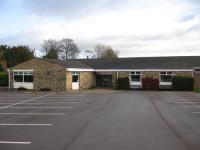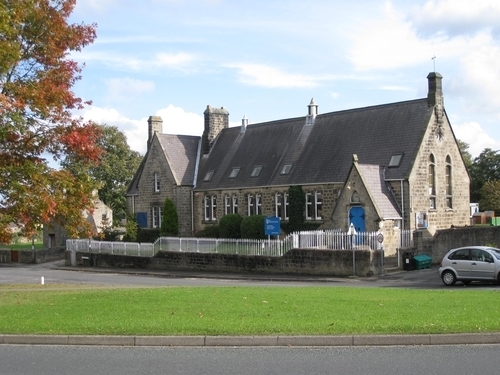Recent articles
© DT Online 2010 - 2025
| Computer MaintenanceIn normal use, computers become cluttered with unused data, temporary files and bits of information scattered about the disc drives. Procedures such as Disc Defragmentation and Disc Clean-up alleviate this problem. Defragmentation is usually automated in Windows7 and 8 so can be ignored, but both operations can be accessed and checked. Disc Clean-up needs to be done manually - but only occasionally. Hardly any software is completely free of weaknesses which malware can eventually exploit. Software also becomes out of date or needs new features adding. For these reasons it is essential to keep Windows up to date and the best way to do this is to ensure it is done automatically. Scheduling automatic updates should also ensure your Windows Firewall is always on but this can be checked within the Security drop-down inside the Action Centre which is accessed via the Systems and Security section of the Control Panel (or just search for Firewall). Anti-virus sofware is used to protect computers against malware attack and must always be kept up to date but can never be 100% effective. For this reason it is a good idea also to regularly scan with a malware removal tool - to 'catch the ones that got away'. Advertising 'pop-ups' are not neccessarily malware - but can be an annoying nuisance. Some pop-up ads are malicious browser extensions added when you install other free software (video recording/streaming, download-managers or PDF creators) that have adware bundled into the installation. Why Do Windows PC's Get Slower Over Time?View this YouTube video by Eli the Computer Guy if you wish to know why this happens. It is a rather protracted explanation but fairly easy to follow. CCleaner is mentioned in the video. This is free and can be a useful tool for reviving older computers which have slowed down. Note: use only in these circumstances - regular use of registry cleaners is not recommended. Disc Defragmentation and Disc Clean-upFor Windows7 and Windows8, Disc Defragmentation is set to run automatically so can be ignored, but Disc Clean-up will need to be run manually - say every few months. Check settings via the System and Security link in Control Panel as shown in the HelpSheet (or simply search for Defrag or Clean-up) Note: Defragmenation is only suitable for (spinning) hard disc drives and should never be used on solid state storage devices (e.g. USB Flash Drives) - its usage here would shorten their life. Uninstalling Unwanted ProgramsWindows computers have an Uninstall utility built-in which can be accessed via the Control Panel. The Windows Uninstall however, rarely removes all parts of a program and there are usually several components and left over traces remaining. Revo Uninstaller is free software available for download which can more thoroughly remove a program and its components if required.
Anti-Virus ProgramsWindows8 computers have Windows Defender built-in (and Windows7 or Vista machines can have the same capability by downloading the free Security Essentials). But many new computers come pre-loaded with a 'free trial' of some proprietary anti-virus such as Norton or McAfee and, as a consequence, Defender has been turned off. This is fine as long as you remain within the free trial period (and you may even wish to start paying for these beyond that) but be aware, that unless you pay, you may be left unprotected after the free trial period because Defender may not automatically be turned back on. If in doubt, follow the advice in Turning Windows Defender on or off and check via the System and Security link in Control Panel. More information on this issue is available in this PC Advisor article. Alternative free Anti-Virus SoftwareMost home users will be sufficiently protected with regularly updated Windows and Defender plus regular scanning by a malware removal tool such as Malwarebytes (see below) . If it is felt that extra protection is needed, there are several good free anti-virus programs available including AVG, Avira and Avast!. The HelpSheet below shows how to install AVG. This is chosen because it is effective but not as intrusive as the others. Note: It is not advisable to try and run two anti-virus programs at the same time and so using any of these will also turn off Defender - it may need to be turned back on again if you ever uninstall. Malware ProtectionIt is a sad reality that any computer connected to the internet needs to be protected against Malware. Malware is a general term (derived from malicious software) used to describe all of the viruses, worms, spyware, and pretty much anything that is specifically designed to cause harm to your computer or steal your information. Antivirus software attempts to prevent viruses infecting your computer in the first place but you should also scan your computer regularly with some malware removal software to catch anything that has managed to get through. It does no harm to scan from time to time with several different malware removal tools on the basis that what one misses another might catch. Note: that most free malware removal tools will need to be updated and run manually every now and then. Blocking Advertising Pop-upsAdware can slow down computers and Internet connections by downloading advertisements. Advertising pop-ups can be a distraction and a waste of time if they have to be closed before continuing. We should recognise that many of the 'free' downloads we value and make good use of, are paid for by advertising but there are other less obtrusive and more passive ways of doing this - and we can always donate where this option is offered. Pop-ups can be blocked from within web browsers and, for added resistance, pop-up blocking browser 'add-ons' can be downloaded Cleaning an Infected ComputerIn spite of taking precautions, if a computer becomes compromised to the point where it cannot be started up or control is lost in some other way, the solution may be to use a Rescue CD. There are many of these, they all work in much the same way and most are free. If you wish to view a comprehensive list of them visit Raymond CC Microsoft's Malware Protection Center gives guidance on advanced trouble-shooting and provides a link to download their Safety Scanner In common with most anti-virus software suppliers, AVG provide details of how to download their free AVG Rescue CD. Either create a Rescue CD in anticipation of its being needed or, if infection has already occurred, use another uninfected machine to make one. (For those who wish to see detailed guidance on how to clean an infected computer, there is a series of YouTube videos on the Britec9 Channel) Computer Maintenance In normal use, computers become cluttered with unused data, temporary files and bits of information scattered about the disc drives. Procedures such as Disc Defragmentation and Disc Clean-up alleviate this problem. Defragmentation is usually automated in Windows7 and 8 so can be ignored, but both operations can be accessed and checked. Disc Clean-up needs to be done manually - but only occasionally. Hardly any software is completely free of weaknesses which malware can eventually exploit. Software also becomes out of date or needs new features adding. For these reasons it is essential to keep Windows up to date and the best way to do this is to ensure it is done automatically. Scheduling automatic updates should also ensure your Windows Firewall is always on but this can be checked within the Security drop-down inside the Action Centre which is accessed via the Systems and Security section of the Control Panel (or just search for Firewall). Anti-virus sofware is used to protect computers against malware attack and must always be kept up to date but can never be 100% effective. For this reason it is a good idea also to regularly scan with a malware removal tool - to 'catch the ones that got away'. Advertising 'pop-ups' are not neccessarily malware - but can be an annoying nuisance. Some pop-up ads are malicious browser extensions added when you install other free software (video recording/streaming, download-managers or PDF creators) that have adware bundled into the installation. |










